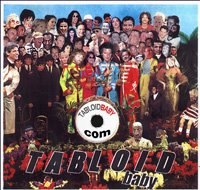 "I am pursuing all legal means at my disposal."
"I am pursuing all legal means at my disposal."That's the lead in the latest explosive controversy to erupt in wake of the
Israel Baseball League exposé penned by
Our Man Elli in Israel and first published here.
In the days after we reported that a respected correspondent for a powerful daily newspaper
plagiarized the sidebar to the story, we wait to see what the mainstream news establishment does about it-- and we offer this
exclusive interview with
Elli Wohlgelernter, author of the original
story about IBL team manager Ken Holtzman that was appropriated, lifted and
plagiarized by
Joel Greenberg of The Chicago Tribune.
See the evidence
here.
And read on for the story behind the story, in this morning's exclusive interview with Our Man Elli in Israel:
Elli, how did you come to write this story? As everyone who knows me knows, I love baseball. I live and breathe it every day. The thought of having professional baseball in Israel was exhilarating, both in the pre-season buildup and once it started. I went to as many games as I could, and got to know people in and around the league. But what I started to see was a sub-text with the players. They were experiencing a totally different reality from the fans! I thought it would make a good story, and started to keep notes on everything. There were many story lines going on, but what I kept seeing was a supposedly professional league that was being run very in a very unprofessional manner. And the players were suffering. Sure, a lot of them wouldn’t be professionals otherwise and were happy just to be playing professional baseball, but the
real players-- the kids who wanted to make a career out of baseball-- they were being held back by the unprofessionalism of it all. I thought it would make a good story.
What motivated you? 
I’ve been a professional journalist for more than 30 years. What motivated me is what always motivates me: I wanted to write an interesting, fair, factual story. And that's what I believe I did. Believe me, I only scratched the surface with what was I put out for publication-- the story that appeared on
Tabloid Baby. What appeared in the Jewish weeklies was a cut-down version that left out a lot of the details in the original. But even that only told part of the story. The story of all 120 players, how they came to play in this start-up league-- that’s a
movie unto itself. They’re just a terrific, terrific bunch of guys. Back in the summer of 1983, I covered the Utica (NY) Blue Sox, a Single-A team, and I thought I’d never have that kind of experience again. This wasn't quite the same-- back then, I lived with the team, rode the bus with them-- but it was pretty close.
What was the feedback from that article? From professionals in the business, it was very positive, recognition that it
was a good story, well-told—a story that revealed what happens when a dream comes up against reality. The heart of the article was how the league, first and foremost, ignored the players—in fact hurt the players--certainly the ones who were trying to forge a future career out of the league-- ignored the native Israelis, and made stupid and sloppy decisions over and over again.
The fallout? Well. (
sighs) I knew there would be some backlash, but I never expected to see what transpired. Many people were really agitated over this story. They saw it in all kinds of ways that cut into a deep emotional hold that this whole idea of baseball in Israel had on people. Many Jews accused me of being a traitor to all things Israeli and Jewish, that I was no different than the many writers among the media who propagate virulent anti-Israeli propaganda that masquerades as journalism. It was taken personally and emotionally, and continued to reverberate day after day, in comments made on many, many web sites and in letters to editors.
(NOTE: Here’s an example: "…You can find the crap in every event. This is such a positive one. Why would you look to find the negative and seek fame leeching on this? How can you call yourself a journalist? You are a dirt digger, crap scraper. That ought to be your business card: Dirt Digger, Crap Scraper, Leech.")It really stunned me.
For weeks, you stood alone and took the heat. I’ve been called names before, but this was a unique. I mean, I though that line about the business card was pretty funny, but the whole idea is absurd! Is there any indication that after 30 years in the business I'm a journalist who would write an article to bash Israel? I understand that these are fans talking, and the fans-- the American-Israelis who attended-- had a great time. But the players experienced a different reality. And one of them was almost killed because of the lack of professionalism among the league organizers. I understand that for the fans, it was an escape from the harsh reality of our lives here in Israel, and anything negative about that fantasy world was more than they wanted to hear-- even if every word of what I wrote was true. And no one has disputed a single fact of my story.
As he walked away,
he said, "It was a good story."
I said, "I know."
Did you consider this to be YOUR story? No one else researched and wrote it. That makes it my story. Most everyone else sugar-coated the experience. I told what the players went through. I worked hard, cultivated sources, obtained internal email memos, hung out at the ballparks, visited the dorms, interviewed dozens of players, managers, coaches, league officials, vendors, reporters. In short, I busted my ass to get a fair, accurate, and honest story of what happened. I wrote 4,500 words on this, and could have written more. No one else did. In the business, it’s what we call an “exclusive.”
You wrote a sidebar story. What was special about it? The
sidebar focused on Kenny Holtzman, the manager of the Petah Tikva Pioneers. He’s an ex-major leaguer who was brought in to help sell the league. His words to David Rosenthal, a reporter for Walla, were explosive, a damning critique against the league. They were big enough that I pulled them out of the main story and highlighted them separately. Kenny said what was on the minds of many of the players. Coming from him, it made sense journalistically to separate it into a sidebar.
It wasn’t your interview. How could you claim it to be yours? I never said the interview was mine. I mentioned Rosenthal a few times in the story and always gave him credit. He, in fact, was the only reporter who did any kind of serious coverage of the league at all, from before the season even began. And I wrote that in my story. What
was mine was the translation of what he wrote. Holtzman spoke in English. I asked Rosenthal for the tapes, but he never recorded it. He only took notes. The article was
published in Hebrew. So I translated back into English what had originally been spoken in English. I sent it to Rosenthal for verification, and he said it was accurate. Joel Greenberg lifted that translation, word-for-word.
 Who is Joel Greenberg? (left)
Who is Joel Greenberg? (left) He’s a reporter for the Chicago Tribune, formerly of the New York Times. His claim to fame is that he went to jail in 1983 as a conscientious objector, for refusing to carry out reserve duty during the first Lebanon war.
Do you know him personally? I've played softball with him, and we're in the same business, but I can't say we’re friends.
How did you feel when you read his article on the Chicago Tribune website? I felt that he had ripped me off. That he’d obviously had read my story in Haaretz here in Israel and only then decided to do a story because he's a reporter for a newspaper in Chicago, the city where Ken Holtzman first rose to fame as a rookie with the Chicago Cubs. It's obvious that's where it came from. Why else would he wait six full weeks to write about Holtzman leaving the Israel Baseball League?
Have you spoken with Greenberg since?I ran into him in the street on Yom Kippur night, and he started to say something about wanting to call me about my story. I asked why was there no shout out, no hat tip, no credit of any kind for his ripping off my story. He said it wasn't the time to discuss it--which was true enough. Yom Kippur is hardly the day for expressing animosity.
Did he say anything else? As he walked away, he said, "It was a good story." I said, "I know."
Joel Greenberg is a big shot, a well-respected mainstream journalist. Why would he stoop so low as to steal a story? You'd have to ask him.
Do you plan to take any action? I am pursuing all legal means at my disposal.
What do you have to say to Joel Greenberg? “Be honest. You're a journalist."
What do you have to say to the world? Keep reading
Tabloid Baby for more updates!
One more question. How’s the book proposal coming?I'm pursuing negotiations with publishers to tell the whole story. There’s so much that was left out due to space limitations.
 As Major League Baseball heads toward the playoffs, it's back to baseball here this morning and the latest twist in wake of Our Man Elli in Israel's Breslinesque report on the blunders and misadventures of the Israel Baseball League's first season.
As Major League Baseball heads toward the playoffs, it's back to baseball here this morning and the latest twist in wake of Our Man Elli in Israel's Breslinesque report on the blunders and misadventures of the Israel Baseball League's first season. 








































